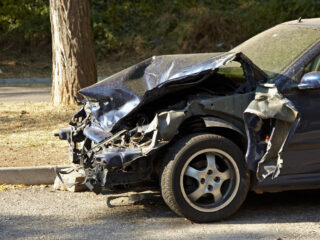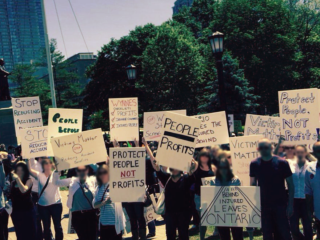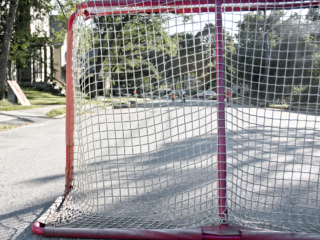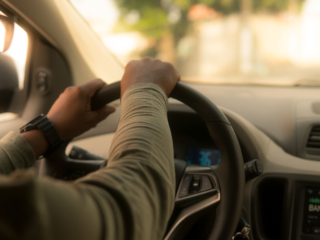Amendment to PJI Rates & SABS Calculations Applicable to 3rd Party Claims. These companion Judgments are appeals dealing with, among other issues, pre-judgment interest and SAB claw-back’s in 3rd party claims.
Heard: April 3 and 4, 2017
Decision Released: September 19, 2017 | Full Decisions [PDF]
In Cobb, the Jury awarded $220,000.00 in compensatory damages from this 2009 motor vehicle accident. After deducting amounts pursuant the Insurance Act for collateral benefits received, coupled with the statutory deductible for general damages, the Trial Judge calculated a final Judgment amount of $34,000.00.
The Trial Judge did not determine whether the amendment in s. 258.3(8.1) of the Act, in force on January 1, 2015, applied retrospectively. The former rate of 5% was split with the current rate of 0.5% pursuant s. 130 of the Courts of Justice Act; setting PJI at 3%.
The Trial Judge’s deductions were:
Past -IRB: $29,300.00
HK/HM: $9,150.00
Future-IRB: $130,000.00
Medical Benefits: $20,000.00
Costs: $2,000.00
The resulting effect of the SAB claw-back was that the $150,000.00 awarded by the Jury for income loss (past and future) was reduced to zero. The $5,000.00 awarded by the Jury for past Housekeeping was reduced to zero; future Housekeeping was unaffected. The statutory deductible effective August 1, 2015, increased from $30,000.00 to $36,540.00 via amendment to s. 5.1(1) of the O.Reg. 461/96 entitled Court Proceedings for Automobile Accidents that Occur on or After November 1, 1996.The Trial Judge concluded the regulation was substantive, and should not be applied retrospectively leaving a net award for general damages of $20,000.00.
Plaintiff’s Issues on Appeal
- Whether the Trial Judge erred by deducting pursuant s. 267.8(1) of the Insurance Act?
- Did the Trial Judge
Plaintiff’s Submissions – SABs Claw-back
The Defendant has failed to satisfy their strict burden with respect to how much of the SABS settlement figures related to past and future IRB. The Plaintiff’s impugn the Trial Judges decision on two grounds.
- The $130,000.00 IRB settlement is not deductible from the Jury verdict as the Defendant did not satisfy the applicable standard of proof.
- The interpretation of Bannon v. McNeely (1998), 38 O.R. (3d) 659 to require separate treatment of damages and SABs for past and future income loss for the purpose of deducting SABs from [tort] damages.
Result
[54] … I have serious reservations as to whether the strict matching requirement articulated in Bannon v. McNeely (1998), 38 O.R. (3d) 659 and Gilbert v. South 2015 ONCA 712, 127 O.R. (3d) 526, the cases referenced by Bassandra v. Sforza 2016 ONCA 251, 130 O.R. (3d) 466 remains good law in this province for two reasons.First, the legislation has changed significantly since Bannon was decided. Secondly, the Supreme Court of Canada in its decision in Gurniak v. Nordquist 2003 SCC 59, [2003] 2 S.C.R. 652, if it did not specifically overrule Bannon, very clearly stated that the case upon which the matching principle in Bannon is based was “wrongly decided”. In my view, Gurniak puts in considerable doubt any qualitative or temporal matching requirement that is not mandated by the current legislation.
On this basis, the Trial Judges decision was upheld.
Plaintiff’s Submissions – PJI
The 2015 amendment, reducing the PJI rates substantially, should not apply retrospectively to a collision that occurred pre-amendment relying on Somers v. Fournier (2002) 60 O.R. (3d) 225 (C.A.) where the Court of Appeal held that PJI is a matter of substantive law and Angus v. Sun Alliance Insurance Co., [1988] 2 S.C.R. 256 in that this amendment to PJI should not apply retrospectively as it provides a ‘windfall’ to insurance companies for previously charged premiums in an assumption of 5% PJI risk for general damages.
Result – PJI
While the Court of Appeal did not interfere with the Trial Judge’s use of discretion pursuant s. 130 of the CJA, the temporal application in general was discussed further and ultimately concluded that the amendment to PJI is in fact retrospective. Among the Court of Appeal’s reasons, one stands out as the balancing factor.
[103] Given the delays that are inherent in litigation, to achieve the cost reduction goal as quickly as possible and within the two year window promised by the government would require the amendments introduced by Bill 15 to apply to cases already in the system. I note that such an interpretation does not undermine the legitimate interests of tort plaintiffs. Any perceived unfairness to litigants who commenced their actions before the effective date of the amendment can be ameliorated through the exercising of a Trial Judges discretion under s. 130 of the CJA to award PJI at a rate other than the default rate.Defendant’s Issues on Appeal
- Whether the Trial Judge erred in failing to deduct the full amount of HK/HM benefits received by the Plaintiff prior to trial, from the Jury award for future HK/HM?
- Whether the Trial Judge erred in applying the former statutory deductible in force prior to August 1, 2015?
Result
- For the same reasons set out at [54] with respect to income loss and IRB, the Court of Appeal applied the same analysis to deduct the future HK/HM award by an additional $4,150.00.
- The language of the statute and the 2015 amendment to s. 5.1 of O.Reg 461/96 clarifies that the legislature intended for the 2015 amendment to have retrospective effect to accidents that occurred before the promulgation of that amendment to the regulation. Further, that s 5.1 is absent temporal language because the provincial executive would have understood that the “rolling incorporation” rule mandated by s. 59 of the Legislation Act would otherwise apply.
Interestingly, the Court of Appeal did expressly say that the statutory deductible is indexed with inflation to meet and adjust according to future inflation rates and keep pace with economic realities. This is designed to meet the jury awards of ‘today’s dollars’.
In El-Khodr the Court of appeal adopted the same analysis with respect to PJI and the SABS claw-back provisions respectfully. The Court of appeal at [83] noted that plaintiff’s should not be able to avoid either the deductibility or assignment of SABs already received or to which they will be entitled in future by the manner in which the claim for special damages is presented.
The Court of Appeal went so far as to suggest that the Plaintiff Bar advance their claims pursuant he categories in s. 267.8 of the Insurance Act, past and future health care expenses, past and future income losses, other pecuniary losses that have SABs coverage, and separate claims for losses that lack SAB coverage. In cases involving non-catastrophic injuries, the presentation of the claim should account for the monetary limits and temporal limitations on benefits compensating for such injuries. This would effectively nullify matching difficulties and avoid under and over compensation.
Read the full decisions [PDF]











